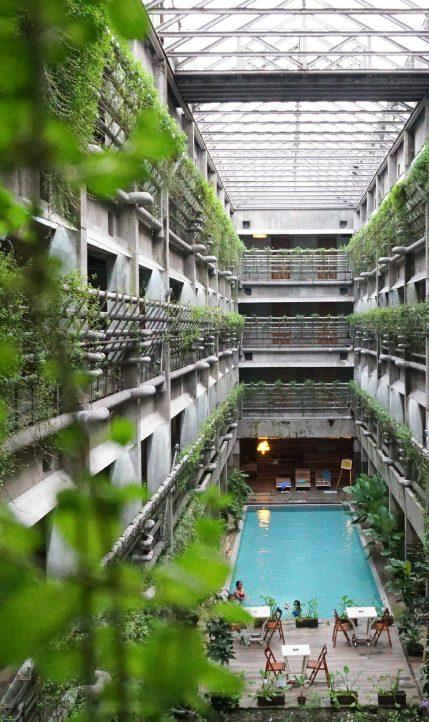
3 minute read
2022: the year of recovery
from ATM Yearbook 2022
by GT Media ME
Scott Livermore, Chief Economist, Oxford Economics, outlines the key socio-economic and geopolitical factors impacting travel and tourism demand now, and in the months ahead
2022 will still be a year of recovery. Consumer-led growth will support travel recovery through the spending of savings accumulated during the pandemic. However, global recovery from the pandemic will be deferred due to rising inflationary pressures and the squeeze on household budgets. Persistent supply-chain shortages will be exacerbated by the unfolding events in Ukraine.
The previously anticipated 2022 economic rebound from Omicron-related impacts is now under threat following the Russian-Ukraine crisis.
The sanctions imposed upon Russia are intensifying rising commodity prices and further squeezing disposable incomes, as well as adding to travel costs. We expect oil prices to remain above $100pb for much of 2022, to peak in Q2, and to fall back later in the year.
Major international events will help to drive a more rapid recovery in the Middle East this year, including Dubai’s successful staging of Expo 2020 and the forthcoming FIFA 2022 World Cup in Qatar. Expo visitors reached 22.9 million in its closing week, hitting the target range and demonstrating ongoing demand for large-scale events.
Higher interest rates will also increase costs within the GCC countries due to dollar currency pegs, with near-term impacts being modest but felt more strongly into 2023. However, the rising oil price should provide some offset, with S&P upgrading Saudi Arabia’s outlook from stable to positive for this reason. Domestic and intra-regional travel demand will remain important and be key growth drivers for regional destinations in the near-term.
The conflict between Russia and Ukraine has shifted the focus from COVID-19 for many destinations, though both pose significant downside risks.
Although the immediate impacts of the conflict are strongly focused on Eastern Europe in our latest forecast, some effects into the mid-term will be widely felt.
Rising commodity prices will pass through to air fares as rising debt servicing requirements mean carriers cannot easily absorb additional costs. Higher fares and squeezed incomes will encourage travellers to seek lower cost options. A wider or longer-lasting conflict remains a key risk to recovery, along with the possibility of renewed restrictions to combat any further covid outbreaks or new variants.
Domestic and short-haul destinations are to remain an elevated share of travel in the short-term, due to the destinations perceived to be safer and involving lower travel costs. Domestic travel will continue to lead international travel in the short-term and is expected to surpass 2019 levels in 2022, whereas international arrivals are expected to regain 2019 levels by 2025.
Business travel is lagging leisure travel, with international business travel spending being 67% lower than 2019 in 2021. The Middle East’s recovery to 2019 levels for international travel is expected in 2024.
Alongside leisure and business travel, religious pilgrimages will once again boost tourism for Saudi Arabia, with Makkah set to receive 4.5mn international arrivals
About
Scott Livermore is the Chief Economist of Oxford Economics Middle East, as well as Managing Director of Consultancy in the Middle East and Asia. Scott leads many of the major projects in the GCC and Asia which have recently included capacity building, macroeconomic modelling, and policy impact assessment engagements for government institutions in the UAE, Saudi Arabia, Kuwait, and Oman, and IFRS 9 and Stress Testing engagements in Singapore, Thailand, and Hong Kong. Scott represents the Tourism Economics team in the Middle East.
and $1.3bn international spend in 2022. Travellers will focus more on sustainable travel experiences. Sustainable travel trends were emerging pre-pandemic, with travellers increasingly demanding sustainable options and an emerging trend of people taking fewer, but longer, international leisure trips to minimise carbon footprint. Over the longer-run, internalising environmental damage in the cost of travel will lead to rising travel costs. Sustainable destinations are also crucial. Saudi Arabia is paving the way with $500bn investment into the Neom project, which aims to be a carbon-free, eco-city.

At the heart of life
At Rotana, we believe time well spent, is a life well lived. This enduring thought is at the heart of every experience we promise when you stay with us.
Our distinct collection of brands include Rotana Hotels & Resorts, Arjaan Hotel Apartments by Rotana, Centro Hotels, Resorts and Hotel Apartments by Rotana, Rayhaan Hotels & Resorts and The Residences by Rotana.
Transform moments into memorable experiences as we present a selection of diverse destinations, ideal for every journey.
To find out more, visit rotana.com Treasured time. Our promise to you.









